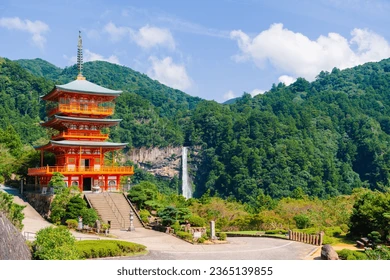Yahatai Kodosai: Celebrating Culture, Community, and Culinary Excellence
Overview
Yahatai Kodosai stands as a vibrant celebration that captivates both locals and visitors alike, drawing people from all corners of Japan and beyond. This festival serves as a significant tribute to Japan’s rich traditions, community, and cultural heritage. While its origins are deeply tied to ancient rituals, the event today strikes a harmonious balance between the past and present, offering a lively experience for all generations. This article will explore the multifaceted layers of Yahatai Kodosai, including its historical roots, cultural importance, community engagement, and the festival’s influence on the local economy.
The Historical Beginnings of Yahatai Kodosai
The origins of Yahatai Kodosai trace back to several centuries ago, grounded in Japan’s spiritual practices and reverence for deities. Hosted mainly in Fukuoka, located on the Kyushu island, the festival was initially conceived as a way to honor local deities and ensure bountiful harvests. This mirrors the customs seen in many traditional Shinto festivals. Over time, Yahatai Kodosai has evolved to include diverse elements of Japanese culture, such as music, dance, arts, and cuisine.
Historically, Yahatai Kodosai was deeply interwoven with Shinto ceremonies, with offerings to local kami (spirits or gods) to seek blessings. While it began as a religious observance, it has also served as a communal celebration where neighbors unite to share in the collective experience. Even though the festival has grown more secular today, it still maintains a spiritual undertone through ongoing rituals that honor these ancestral traditions.
Culinary Delights at Yahatai Kodosai
At Yahatai Kodosai, food plays a central role far beyond mere sustenance. The festival acts as a platform for local food vendors, many of whom have passed down their culinary skills for generations. Stalls brimming with street food, from yakitori (grilled chicken skewers) to creative fusion dishes, line the festival grounds. The food selection on offer at Yahatai Kodosai showcases the diverse and rich culinary traditions of Japan, giving both residents and tourists a chance to savor authentic regional flavors.
What truly sets the food aspect apart is the emphasis on communal dining. Families and friends gather around food stalls, enjoying meals together—a core principle of the festival. Sharing food is an integral part of Japanese culture, and Yahatai Kodosai fosters this spirit of connection. Tasting both familiar regional dishes and newer fusion creations deepens the participants’ bond with the local culture. Furthermore, many food vendors come from long-established culinary traditions, passing down recipes that reflect the history and essence of Fukuoka’s gastronomic culture.
Fun-filled Activities for All Ages
Yahatai Kodosai is a festival that provides enjoyment for all generations, offering a wide range of activities designed to engage children, families, and individuals alike. The lively atmosphere of the event is filled with opportunities for younger attendees to experience traditional Japanese games such as kendama, a dexterity game involving a cup and a ball. Additionally, origami workshops, face painting, and kite flying are also among the favorites of younger festival-goers. These activities serve as an introduction to traditional Japanese crafts and playful arts, creating a fun and educational environment for kids.
For families, Yahatai Kodosai offers interactive opportunities like dance workshops where both parents and children can learn traditional Japanese dances together. This hands-on experience makes the festival a special occasion to explore Japanese culture in a way that is both enjoyable and inclusive.
The festival is also marked by large and eye-catching parades, featuring beautifully crafted floats, vibrant drumming performances, and joyful music. These performances, taking place at various points throughout the event, captivate attendees of all ages. The floats themselves are works of art, handcrafted and adorned with meticulous detail, contributing to the visual appeal and festive atmosphere of Yahatai Kodosai.
Spiritual and Cultural Showcases
While Yahatai Kodosai is a joyful celebration, it also provides a moment to honor Japan’s spiritual and cultural customs. One of the festival’s highlights is the Yamakasa, a ceremonial event where participants carry heavy, ornately decorated floats through the streets of Fukuoka. This ritual, while physically demanding, is also a form of respect and devotion to the local deities.
In addition to the Yamakasa, the event features performances of classical Japanese music, where traditional instruments like the shamisen and koto take center stage. These musical performances provide a sonic journey through Japan’s musical history, offering audiences a glimpse into the sounds of the past, brought to life in a contemporary context. Traditional dance forms, such as Bon Odori, are also performed, inviting participants to join in and express their joy through movement.
The Strong Community Focus of Yahatai Kodosai
What truly distinguishes Yahatai Kodosai is its deep sense of community. This event goes beyond being a mere cultural festival—it’s a communal gathering that welcomes everyone, whether local or foreign. Volunteers play an essential role in organizing the festivities, helping with the logistics of performances, food stalls, and overall event coordination. Their contributions ensure the seamless flow of the festival.
The community’s involvement fosters an atmosphere of inclusivity, where every participant feels a part of the celebration. Locals take immense pride in showcasing their culture, from traditional crafts and food to the performances that have been passed down over generations. The festival serves as a reminder of the importance of preserving cultural heritage, while also embracing modern innovations. Yahatai Kodosai truly stands as an example of how tradition and innovation can exist harmoniously.
The Economic Influence of Yahatai Kodosai
Beyond its cultural importance, Yahatai Kodosai has a significant impact on the local economy. The influx of visitors during the festival stimulates various sectors, from tourism and hospitality to retail. Hotels, restaurants, and local shops see an increase in business, as both domestic and international visitors flock to Fukuoka to witness the unique festival offerings.
Moreover, the visibility provided by the festival benefits local artisans and food vendors, offering them an opportunity to promote their goods to a broader audience, which can lead to enhanced sales and recognition. For many of these businesses, Yahatai Kodosai plays a crucial role in sustaining their livelihoods long after the event is over. Additionally, the festival’s growing global exposure through media and documentaries brings even more tourists to the area, further amplifying the economic benefits for Fukuoka and its surrounding regions.
Sustainability Efforts at Yahatai Kodosai
In recent years, Yahatai Kodosai has taken significant steps to reduce its environmental footprint by incorporating sustainable practices into its organization. The festival encourages visitors to bring reusable water bottles and has set up recycling stations to minimize waste. Several food vendors now use biodegradable packaging to reduce plastic waste, demonstrating a growing consciousness of environmental concerns and the importance of eco-friendly practices in cultural celebrations.
Furthermore, by supporting local artisans and food producers, the festival promotes a more sustainable economic model. By focusing on regional products and fostering the growth of local businesses, Yahatai Kodosai helps reduce the carbon footprint associated with the transportation of goods from distant locations.
The Cultural Impact of Yahatai Kodosai
Yahatai Kodosai has evolved into more than just a regional event; it has made a notable impact on popular culture, both in Japan and internationally. Documentaries, travel shows, and media outlets often highlight the festival, sharing its unique traditions and lively performances with a global audience. These portrayals not only celebrate the festival but also introduce viewers to Japan’s deep cultural roots, helping spread appreciation for the nation’s heritage worldwide.
The influence of Yahatai Kodosai also extends into the arts, where collaborations between traditional performers and modern artists have led to innovative performances that blend heritage with contemporary creativity. These collaborations help bridge the generational divide, making the festival appealing to younger audiences while maintaining its cultural integrity.
Through its growing international recognition, Yahatai Kodosai continues to inspire curiosity about Japanese culture, attracting more tourists and solidifying its place as one of the country’s premier cultural festivals.
Key Facts about Yahatai Kodosai:
- Cultural Celebration:
Yahatai Kodosai is a vibrant festival held annually in Fukuoka, Japan, celebrating local traditions, food, and spiritual practices, blending ancient customs with modern entertainment.
- Historical Roots:
The festival has its origins in Shinto rituals and was originally created to honor local deities and ensure a successful harvest, reflecting Japan’s deep connection to spirituality and cultural practices.
- Community Spirit:
Yahatai Kodosai emphasizes the involvement of the local community, with residents, volunteers, and tourists coming together to participate in various events, from parades to traditional performances.
- Culinary Delight:
The festival features a rich array of local cuisine, offering visitors a chance to enjoy both traditional dishes, like yakitori, and more modern, fusion-style foods, contributing to the culinary diversity of the region.
- Economic Impact:
Beyond its cultural significance, Yahatai Kodosai also has a substantial economic influence, boosting tourism and supporting local artisans, food vendors, and businesses, benefiting Fukuoka’s economy each year.
Conclusion
Yahatai Kodosai is much more than a mere festival; it represents a vivid celebration of Japan’s cultural heritage, community unity, and local customs. From its origins rooted in ancient Shinto practices to its modern blend of food, music, and dance, the festival continues to captivate people of all ages. Whether it’s the spirited parades, the detailed floats, or the collective enjoyment of food and family activities, Yahatai Kodosai offers something for everyone. The event stands as a testament to the enduring significance of community, tradition, and innovation, cementing its status as a key cultural touchstone in Fukuoka and beyond. With its expanding global presence and positive economic impact, Yahatai Kodosai is poised to remain a treasured tradition for generations to come.
FAQs
What is Yahatai Kodosai?
Yahatai Kodosai is a cultural festival held in Fukuoka, Japan, that honors local traditions, food, and spiritual practices. The event combines ancient customs with modern entertainment, creating an exciting atmosphere for people of all ages.
When does Yahatai Kodosai take place?
Typically, Yahatai Kodosai occurs during the summer months, though specific dates may vary from year to year. It’s best to check local schedules for the exact timing each year.
Where is Yahatai Kodosai celebrated?
The festival primarily takes place in Fukuoka, located on the island of Kyushu in Japan. Many of its events are hosted in public spaces across the city.
What activities can you expect at Yahatai Kodosai?
Yahatai Kodosai offers a wide array of activities, including parades with intricately decorated floats, traditional Japanese music and dance performances, food stalls with local delicacies, and fun games and workshops for families, such as kendama, origami, and kite flying.
Is Yahatai Kodosai suitable for families?
Absolutely! Yahatai Kodosai is a family-friendly festival with numerous activities designed for children, including games, workshops, and interactive dance lessons, making it both an enjoyable and educational experience for attendees of all ages.
How does Yahatai Kodosai benefit the local community?
The festival plays an integral role in promoting Fukuoka’s cultural heritage and provides economic benefits by supporting local artisans, food vendors, and businesses through tourism and commerce.
Is Yahatai Kodosai environmentally conscious?
Yes, the festival has embraced eco-friendly initiatives, such as reducing waste, encouraging reusable items, and using biodegradable packaging to minimize its environmental impact.
How has Yahatai Kodosai gained global recognition?
The festival has been featured in various media outlets, including travel documentaries and television programs, helping to share its cultural significance with international audiences. Its increasing visibility has attracted more tourists, further enhancing its reputation as a top cultural event in Japan.
Stay in touch to get more updates & alerts on Randalls! Thank you







